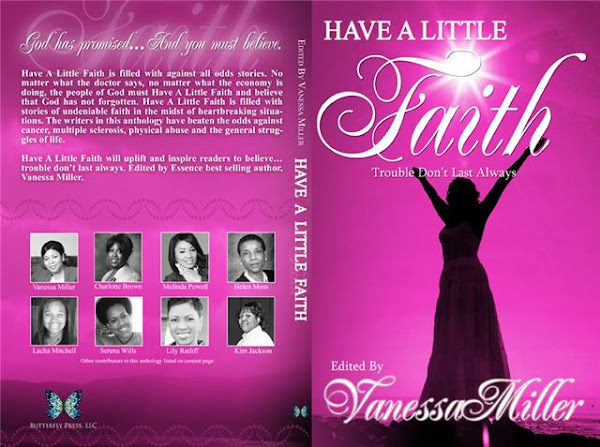Hello everyone! As you know I'm an advocate for GYN cancers and women's health. Matt Phillips that is a reader of my blog offered to guest blog. He's a young professional who has found his voice in advocating for women's health. He's currently enrolled at the University of Central Florida, enjoys writing and voicing his opinion on women's health and other issues. Please show him some love.
Early Relationships for Teens/Young Adults: When Desire Leads to Danger by Matt Phillips
Love happens quickly for teens and young adults. Suddenly that special person becomes their reason to floss at night and eat healthier. Young couples even allow drastic changes to take over their lives. They often feel pressured to take actions because of an overwhelming desire to act mature. However, it’s dangerous to let these compromises take hold because these patterns can become the norm in a relationship and hard to break. Young adults often make hasty choices to initially satisfy their partner, not knowing these actions set the tone for the rest of the relationship.
Physical intimacy is where so many young couples get themselves in trouble. Women are usually in the position to compromise the most. Often out of low self-esteem and peer pressure, young women will succumb to their partner and give in to demands they might not be comfortable without contraception or protection.
Unfortunately, not all contraceptive choices are safe for women. Sex for these couples, especially at the early stage, is often about selfish satisfaction, and men are often willing to let their partner utilize any drug possible that will facilitate this early intimacy. An emotional bond and concern for each other’s well-being is simply absent at this stage. Unfortunately, this pressure to use unsafe forms of contraception can have serious, even fatal side effects.
Sadly, sex education in this country doesn’t do enough and rarely teaches teens about responsible physical relationships. The U.S. government’s funding goes towards abstinence-focused education; the entire teen population still engaging in sex is disregarded. This abstinence education is almost useless to these teens, as it fails to address questions and concerns they might have. Proponents of this education feel that open discussion of birth control and safe sex would legitimize the physical act. Instead, they feel more comfortable not addressing statistics, like the ever-growing rise in teen sexuality.
According to this legislation, programs receiving this funding which was extended by 5 years must "teach that abstinence from sexual activity is the only certain way to avoid out-of-wedlock pregnancy, sexually transmitted diseases, and other associated health problems," the Department of Health and Human Services explains. However, opponents to this legislation promoting evidence-based sex education are concerned that $250 million is going to state programs that haven’t shown effectiveness.
While attempting to provide teens with the safest, most useful information, it actually might prompt more negative results associated with sex than good. With the government renewing its abstinence-focused education programs this year, unbiased information for teens still choosing to be sexually active might be absent in schools. However, this lack of information about adult sexuality is best exemplified in the most vital areas of discussion such as pregnancy and sexually transmitted disease. While pregnancy rates in this country have decreased in the last few years, the spread of sexually transmitted disease hasn’t. Many birth control methods, while relatively effective at preventing pregnancy, can falsely imply complete protection to all outcomes of casual sex, including sexually transmitted disease.
Instead of responsible institutions, companies out for profit have largely replaced sex education for teens, pandering to the sexually active through various forms of media. It appears these companies have found a solid market too, embracing that portion of the teen population turned away by federal legislation.
Oral contraceptive companies, especially, have been recognized as feeders of unreliable and dangerous information to teens and young women. Misconceptions about oral contraceptives are easily understood after examining the marketing done for these products. Despite these revelations about this drug manufacturer’s credibility, by far the worst side effect of this drug is the serious physical results it has on women. These hormone-altering pills lead to permanent side effects, like the possibility of infertility. An example of one is the growing number of complaints against oral contraceptives, exemplified by pending Yaz lawsuits, indicates that the short-term safety of such birth control options is far from guaranteed. Users of this particular product have seen serious, and sometimes fatal, side effects including heart attack, stroke, blood clots, pulmonary embolisms, and gallbladder disease. However, because schools either refuse to recognize or are anything but abstinence as a legitimate lifestyle, these facts are never discussed with teens.
With so little being done to educate teens and young people about responsible sexuality, it rests with parents and other role models to provide responsible lifestyle information. Emotional attachment, especially early in relationships, can lead to dangerous compromises with lasting results. However, the sooner we take the lead as role models and address those teens that need attention the most, the quicker we’ll see the resolution of dangerous national trends, like sexually transmitted disease infection and dangerous contraceptive use. Then we can let young people discover the beauty and joy of love in the safest way possible.
Subscribe to:
Post Comments (Atom)










1 comment:
Thank you so much for allowing me to share my opinions on your website. I'm a huge advocate for Women's Health and making sure that people know the dangers of Birth Control pills and other harmful drugs. I've done a lot of research and I would like to site some resources for any readers who might be interested.
Here are some great websites which I gathered my information from:
Sex Education
Yaz lawsuit
Permanent side effects
Drug Alert
and
Ad campaigns
I'd like to express a great deal of gratitude for Serena allowing me to write for her. I've learned so much from reading her site and can't wait to see what else is in store. Thanks again, Serena!
-Matt Phillips
Post a Comment